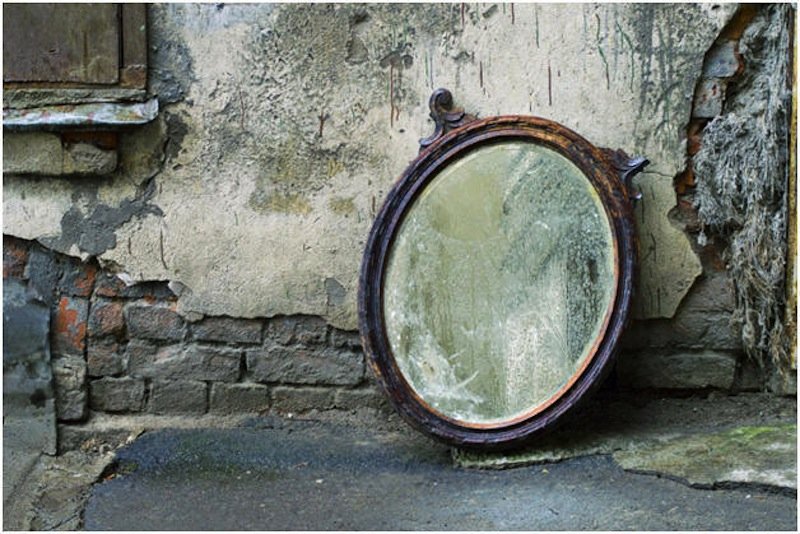Walter Hartwell White is going to hell.
Whatever else happens — whoever dies in the shootout, no matter what-all happens in the final three episodes, whatever he’s planning to do with the ricin recovered from his burned out house — that’s a fact.
In fact, Breaking Bad creator Vince Gilligan said that was the point, one which the Reformed among my readers, if any, will appreciate: he set out to turn the protagonist into antagonist.
It was conscious, intentional, and set in type from the start, and he’s done so, making Walt’s destination not only a fact, but the fact, and making life difficult for viewers along the way.
At least for this one because early, I sympathized with Walt immediately, and it lasted some goodly time. I felt his talents had been unused, his person ill-used, and that he had, in short, been screwed.
As he began to deal drugs, I was still on his side. Walt’s thinking was mine, or perhaps mine his: Get in. Get out. In between those two points, make a million bucks. Ba da bing.
As cracks began to appear, my support declined — but he was still better than anyone else on the block, except Hank. And Hank was a bit of a lout, with a nutty wife.
I didn’t want him to die, and I did want many of his enemies to do so. Gus Fring creeped me out, the Salamanca Family were unalloyed evil and held no allure, and Jesse was … just this kid with a recurring drug habit, and therefore of no account.
Then it grew clearer that many of Walt’s grievances were manufactured, and of those that remained, well, shoot, you don’t have to become a drug dealing murdering rat bastard just because you didn’t get rich like your college buddy and ex-girlfriend.
Plus which, it was highly possible that he’d jacked that on his own, before any of the stuff we’d first been made aware of had even happened.
This tripping up grew into full-fledged free-fall as I looked at the show as a writer and sub-creator, wondering, to take one example, about Walt’s lying: was he (from his view) lying? Or did he actually believe the things he was saying, even though they were certainly false?
Then I realized he liked all of this. It was perfect. It was what he’d (really) wanted all along: to be the master of his fate and the captain of his soul. They say diplomacy is telling the guy to go to hell such that he’ll enjoy the trip.
He was enjoying the trip.
A lot.
Now, in the final season — indeed in the final trio (perhaps triptych, though we can’t know yet) of episodes — it doesn’t matter, because he’s gone.
Walter H. White is going straight to hell, and whether his creator sent him there, or he sent himself, or as C.S. Lewis says in The Great Divorce and elsewhere, he has always been there, and would not want to be anywhere else, is a question irrelevant to him.
It has ever been thus.
But it is not so, to us.
For we who remain it is a crucial question, and the answer is even more vital. For this hell is, we may say, a country for old men.
I say so because I believe this is Walt’s war, and I’ve lived it.
Not the drug war. The one that kills the soul, whatever it does to the body.
Whether we make our million, or end up murdering others in our hearts for years.
The one where every opposition is cause for grievance, and every grievance cause for revenge.
Walt is in his early 50s, and if he lives on past episode eight (and I’m suspecting he will), he may live to be a hundred. And we may do so as well. And as we do, it is, for this viewer, that constant struggle not to go there.
Hell is other people, said Sartre, in No Exit.
Myself am hell, said Satan, in Paradise Lost.
Somewhere between there — since we are all “other people” and all “ourselves” — is that potential knowledge that hell is us, or can be, if we let it, which ends up meaning pursuing it, which ends up meaning Walter H. White.
Again in The Great Divorce, Lewis conceives of hell as a place where people move farther and further away from one another because (they think) hell is other people but (in truth) myself am hell.
And we like to say There’s a special place in hell for … but really, there’s just the one, and it’s not special. So if Dante was right, Walt will die eternally in a crystal blue persuasive haze — but so what?
It’s hell.
It’s him.
In the movie No Country For Old Man, Tommy Lee Jones’ character’s opening monologue concludes,
There’s this boy I sent to the ‘lectric chair at Huntsville here awhile back: my arrest, and my testimony. He kilt a 14-year-old girl. The papers said it was a crime of passion, but he told me there wasn’t any passion to it. Told me he’d been planning to kill somebody for about as long as he could remember. Said if they turned him out, he’d do it again. Said he knew he was going to hell — be there in about 15 minutes. I don’t know what to make of that. I surely don’t.
We need to learn what to make of that, and what to do about it, and become men who will do that.
Sheriff Bell notes this will put his soul at hazard, but truth is, it’s at hazard either way.
